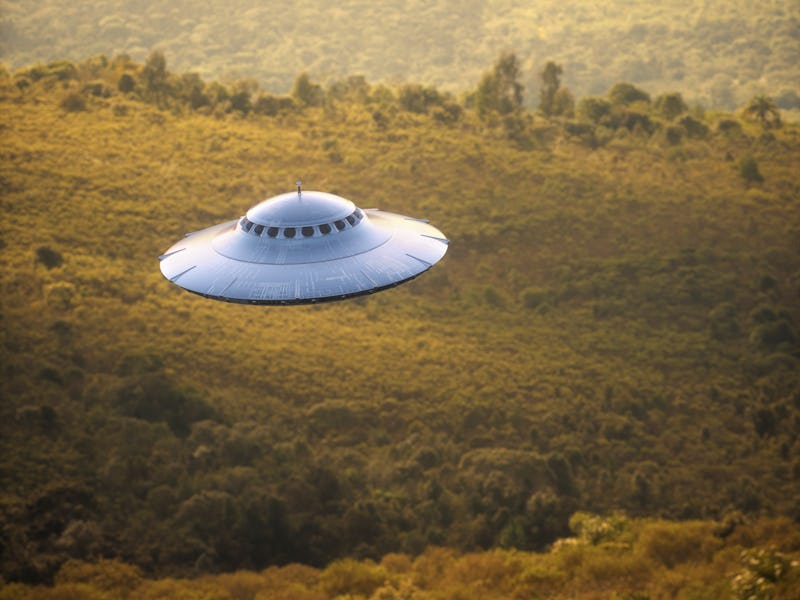Did NASA hire 24 theologians? Here's what you actually need to know
Social media claimed the space agency is using religious experts to predict reactions to aliens.

The search for life beyond Earth is already riddled with conspiracy. Throw some religion in the mix and it’s enough to get people enticed. Several news websites were buzzing with rumors over NASA recently hiring a team of theologians to help predict humanity’s reaction to finding alien life. However, that’s barely half the truth.
While the space agency did provide a grant towards the Center of Theological Inquiry to assess the implications for the hunt for alien life, that research ended four years ago, and the team was never a part of NASA staff.
Instead, efforts to find aliens are still ongoing as scientists scour the cosmos for habitable exoplanets and wait on data beamed down from rovers on Mars. Just minus the clerics.
Here’s the background — This week, rumors spiraled over NASA hiring two dozen experts via the Center of Theological Inquiry in Princeton, New Jersey, which some news outlets referred to as “priests” or “clergy.”
Media outlets claimed that this was part of the space agency’s efforts to understand how people would react to discovering alien life in the cosmos.
Social media users took the news and ran with it, claiming that this foreshadowed what will come in the upcoming year and that aliens would be the next big surprise.
This all stemmed from a statement released by one of the theologians allegedly involved in the NASA research.
University of Cambridge religious scholar Rev. Dr. Andrew Davison wrote, “Since the evolution of life is clearly not impossible, and the places where that might happen are probably extraordinarily numerous, there may well be a great deal of life elsewhere ... Religious traditions would be an important feature in how humanity would work through any such confirmation of life elsewhere.”
“Because of that, it features as part of NASA’s ongoing aim to support work on ‘the societal implications of astrobiology’, working with various partner organizations,” the statement continued.
IS IT TRUE? — In 2015, NASA provided $1.1 million in funding to the Center of Theological Inquiry that went towards a program to study the social impact of finding life beyond Earth. The organization sent out a press release at the time, calling it funding to “convene an interdisciplinary inquiry into the societal implications of the search for life in the universe.”
Not all 24 participants were clergy either. The Center drew from theology, the humanities, and social sciences in their work to study the “societal implications” of “the origins, evolution, distribution, and future of life in the universe.” The funding lasted for two years. While there’s no report on the organization’s website, Davison wrote a blog post in 2019, “Who knows when, or if, that momentous news will break. If it does, however, we can be sure that it need not catch the Christian intellectual tradition on the back foot.”
And though NASA certainly gave money toward the program, it didn’t go as far as to hire anyone from it. A spokesperson from NASA told the Associated Press that the researchers involved in the program were never directly employed by the space agency.
“Individuals who receive grant funding from NASA are not employees, advisors, or spokespersons for the agency,” the spokesperson told the AP in an email. “Thus, the researchers and scholars involved with this study were not hired by NASA, but instead received funding through CTI to conduct this work.”
Are we going to find aliens in 2022?
Aliens have made a resurgence into mainstream media this past year with the release of the Pentagon UFO Report. The government report on unidentified aerial phenomenon (UAP) did not confirm nor deny alien visitors, but its inconclusive results led many people to believe that their long hoped for “disclosure” was around the bend. The rumor of NASA hiring a clergy member certainly added fuel to the fire.
Although there’s no definitive evidence that life exists beyond Earth, some researchers believe the probability of life emerging elsewhere in the vast universe is pretty high.
Scientists, in turn, have developed very real ways to actually search for extraterrestrials — just perhaps not the kind of aliens one would generally expect. For instance, the Search for Extraterrestrial Intelligence looks for radio signals or optical beacons from alien civilizations. Several agencies are also hoping to find evidence of past or present life on Mars and Solar System moons like Europa, Titan, or Enceladus.
Further out, scientists usually look for biosignatures in exoplanets, a cellular complex or chemical compound that is indicative of an ongoing biological process. With the recent launch of the James Webb Space Telescope (JWST), scientists are hoping to learn more about these foreign worlds.
JWST will be able to study the atmosphere of exoplanets in great detail by observing exoplanets as they orbit in front of their home star and drawing out their atmospheric properties during transit. This could help us find places with surprisingly Earth-like atmospheres, giving alien hunters ideal places to look.
Maybe if it finds something, we’ll want to talk to a religious figure,
This article was originally published on